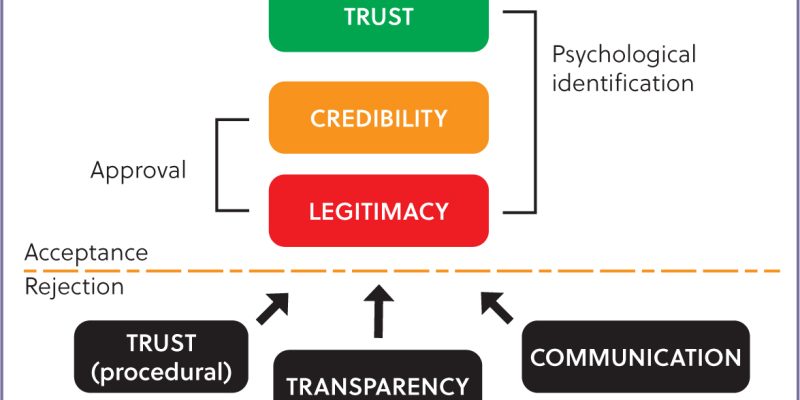Why Social License to Operate Matters: 5 Key Insights for Modern Businesses

In today’s interconnected world, businesses need more than legal permits to operate effectively—they require a social license to operate (SLO). This unwritten agreement reflects the community’s approval and trust in a company’s activities. Originating from the mining sector, the term has expanded to all industries as businesses face growing public expectations for ethical, transparent, and sustainable operations. Without a social license, companies risk backlash, reputation damage, and financial losses.
This article explains the concept of SLO, its importance, and how businesses can build and maintain it in today’s socially conscious environment.
What is the Social License to Operate?
The social license to operate is the ongoing approval or acceptance a business receives from its stakeholders, including local communities, employees, and society at large. It is not a legal document but a level of trust built through actions, communication, and engagement.
Key Features of SLO:
- Trust and Credibility: Trust is earned over time through consistent, ethical behavior.
- Ongoing Engagement: It requires regular dialogue with stakeholders to address concerns.
- Adaptability: Businesses must respond to societal changes, local dynamics, and evolving expectations.
A robust SLO ensures smoother operations and long-term sustainability by aligning company goals with societal values.
Why is the Social License to Operate Important?
Gaining and maintaining a social license is essential for businesses for the following reasons:
Builds Trust and Reputation
Trust is the foundation of an SLO. Companies that demonstrate transparency and ethical practices gain trust, boosting their public image and reputation.
Reduces Operational Risks
Without an SLO, businesses face resistance from stakeholders, leading to delays, protests, or project cancellations. Proactively addressing concerns helps minimize risks.
Enhances Competitive Advantage
Companies with a strong social license are perceived as reliable and ethical, attracting investors, partners, and loyal customers. It becomes a unique selling point in competitive markets.
Supports Long-Term Sustainability
Aligning operations with community expectations ensures businesses operate sustainably while avoiding disruptions due to social opposition.
How to Achieve a Social License to Operate?
To gain a social license, companies must prioritize engagement, ethical behavior, and transparency.
Stakeholder Engagement
- Identify Key Stakeholders: Understand who is impacted by your business operations, from local communities to regulators and employees.
- Open Communication: Host meetings, surveys, or workshops to address concerns and seek input.
- Address Community Needs: Invest in initiatives that benefit the community, such as education, healthcare, or infrastructure.
Ethical Business Practices
Companies must operate responsibly by adhering to ethical and environmental standards. Implementing corporate social responsibility (CSR) programs is a key step toward gaining trust.
Transparency and Accountability
- Public Reporting: Share sustainability reports or progress on initiatives to demonstrate accountability.
- Resolve Issues Promptly: Address grievances and take corrective action transparently.
Challenges in Maintaining a Social License to Operate
Maintaining an SLO requires continuous effort as societal expectations evolve. Businesses often face challenges such as:
- Changing Community Dynamics: Socio-political changes may shift community priorities.
- Environmental Concerns: Failure to address environmental risks can damage the SLO.
- Global Supply Chains: Companies are increasingly held accountable for ethical issues across their supply chains.
Businesses must remain agile and proactive to maintain public trust and support.
Conclusion
The social license to operate is a vital, intangible asset for modern businesses, reflecting the trust and acceptance of society. Beyond legal compliance, businesses must actively engage stakeholders, uphold ethical practices, and address societal and environmental concerns. A strong social license safeguards operations, enhances reputation, and ensures sustainable growth in an increasingly conscious world.
By earning and maintaining the social license to operate, companies can build meaningful relationships, mitigate risks, and thrive in today’s dynamic landscape.
FAQs
1.What is a social license to operate?
A social license to operate (SLO) is an informal approval or trust a company gains from stakeholders, such as communities and society, allowing its operations to proceed without resistance.
2.Why is the social license to operate important?
An SLO is crucial for reducing operational risks, building trust, and ensuring business sustainability. Companies without community support face disruptions, protests, or reputational damage.
3.How can businesses gain a social license to operate?
Businesses can achieve an SLO through stakeholder engagement, ethical practices, transparent communication, and by addressing community needs proactively.
4.What are examples of losing a social license to operate?
Examples include community protests against environmental pollution, public backlash due to unethical labor practices, or reputational damage following corporate scandals.
5.How does a social license to operate affect sustainability?
An SLO aligns business goals with societal values, encouraging sustainable operations, community partnerships, and long-term success.











